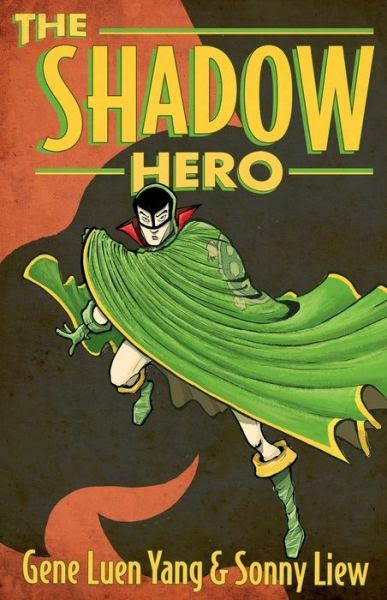Gene Luen Yang's entry in this category is more explicable than most: much of his work has been about identity, particularly a Chinese identity and what that means, for a long time. So an obscure Golden Age character who fought in China against the invading Japanese -- who appeared to have a Caucasian skin tone, but whose face was never clearly shown and whose origin never revealed -- is exactly the sort of thing you'd expect the author of American Born Chinese and Boxers/Saints to be fascinated by.
So: somehow Yang learned of the exploits of the Green Turtle -- that obscure hero, who was created by the even more obscure cartoonist Chu Hing for Blazing Comics, where he had five adventures before returning to oblivion -- and decided to draw out the threads of story he saw in that old newsprint and give Green Turtle a proper origin.
The Shadow Hero
Like so many others who put on capes and masks before him -- though Hank doesn't actually put on much more, with his Spectre-like costume -- tragedy drives him to become a hero. (Unlike those others, he's driven as much by his mother's demands.) And the result is a pleasing superhero story with a unique and specific ethnic flair, and, like any good superhero origin, Yang leaves in hooks for another dozen or so more issues -- even if he and Liew never continue this story, they could, and that's what's important for superheroes: always leave space for another story, like a fat man saving room for pie when eating at a diner.
Shadow Hero is less ambitious and powerful than Yang's other work, of course -- but it works well as a superhero tale, as a family story, and as one young man's coming of age. And it makes it that much more likely that Yang will one day do a variant cover for Deadpool.
Book-A-Day 2014 Introduction and Index

No comments:
Post a Comment